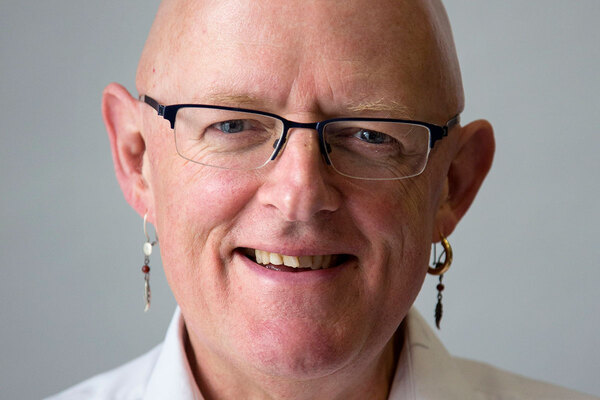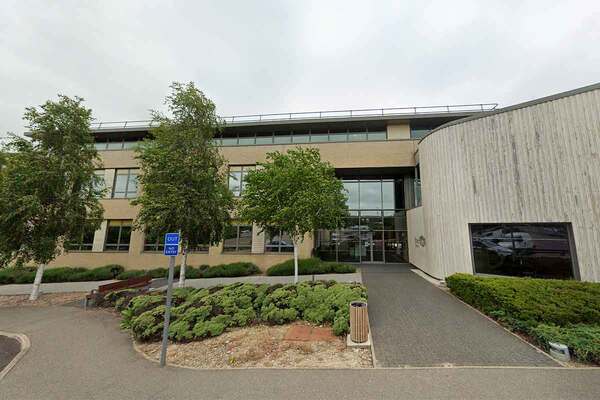You are viewing 1 of your 1 free articles
What Elliot did next
Elliot Lipton, managing director of First Base, comes from commercial property’s equivalent of the aristocracy. David Blackman finds out why he wants to be a registered provider. Photography by Jon Enoch
Many of the biggest housing associations began life in shabby anterooms, where concerned campaigners would gather to right social injustices. By contrast, First Base has just announced plans to set up a registered provider from its spacious and well-appointed offices on Cavendish Square in London’s West End.
To find out why the property developer is expanding its reach in social housing, Inside Housing is meeting Elliot Lipton, the firm’s co-founder and managing director, who is practically aristocracy in commercial property terms.
Family heritage
His father, Sir Stuart Lipton, is one of the UK’s best known developers, who helped set up the Commission for Architecture and the Built Environment, New Labour’s now defunct architecture watchdog. The tall Lipton junior has inherited his father’s imposing build as well as his keen interest in high-quality architecture.
Tieless and, understandably, in shirtsleeves on a sweltering day, he cuts a less formal air than his father though. And, since setting up First Base in 2002, he has ploughed a very different furrow.
Sir Stuart won renown for schemes such as Broadgate, the signature development of the post-Big Bang era City of London. By contrast, Mr Lipton has focused on the less well-heeled streets of London’s inner city, spotting an opportunity in the then-government’s drive to build mixed-tenure communities.
First Base, which was initially set up with backing from his father’s Stanhope property company and Lendlease, made its mark in 2005 when it was awarded five sites to develop in inner London through the then-government regeneration quango English Partnerships’ London Wide Initiative’s low-cost housing programme.
This deal established a pattern of close co-operation with public agencies and local authorities, which has helped First Base to net a string of projects, the biggest of which is Silvertown, where it is helping to erect seven million square feet of development, including about 3,000 homes, in London’s Docklands.
Working in this public-private ecosystem means that setting up a registered provider is not quite as big a departure as it will be for some of First Base’s peers, such as British Land, which recently unveiled its own social landlord ambitions.
First Base has already dipped its toe in the social housing world by registering as an accredited provider, enabling it to access development grants. And from day one, the company set out its stall to integrate the market and affordable properties in its developments. This meant, Mr Lipton says, challenging his property world peers’ prejudices that the two could never mix successfully.
“If we are long-term investors and holders of our developments, we should be looking at what it’s going to take to create a sustainable place,” he says. “As part of that placemaking objective, we felt we had to focus on all of our residents. We weren’t interested in prioritising people on one income or another. We’ve always tried to have no differentiation in the way our buildings look by tenure.”
Doing these kinds of projects, First Base has worked closely with housing associations, most notably on its Triathlon Homes joint venture with Southern and East Thames housing groups, which owns and manages nearly 1,400 homes originally developed for the Olympic athletes’ village.
Mr Lipton sees First Base continuing to work with other housing associations even after it has set up its own social landlord, although says it is too early to talk details.
However, he clearly thinks First Base can do a better job than some of the associations with which he has worked. Without wishing to single out individual associations, he describes working with the sector as an “eye-opening” experience.
Following the sector’s deregulation, and with the regulator increasingly focusing on value for money, Mr Lipton sees the housing association world as ripe for a shake-up.
“The sector has some incredibly competent and efficient providers – some of the largest registered providers are bigger than some house builders – but we also have a number of organisations who are not quite as efficient either from a value for money or a quality of service perspective,” he says.
Insisting that many smaller associations are doing a “good job”, the sector’s mid-tier is in Mr Lipton’s sights. Much of the merger activity has taken place at the relatively efficient top end of the sector, he argues, leaving plenty of further scope for consolidation.
It is not just about value for money either.
“What causes us concern is where you have a housing estate divided up into six or seven registered providers,” he says. “When you look at that sort of model, you can tell it is not as economically efficient as it could be. At the same time, you could improve the quality of residents’ services by having a locally based team.”
Competition concerns
Does he believe that associations are, owing to their not-for-profit nature, insufficiently exposed to the cold wind of competition? “The ownership structure of registered providers allows organisations to maintain a structure that prevents some of the things one would expect to see in the market economy,” he replies.
As for First Base’s future, Mr Lipton expresses interest in getting involved in build-to-rent development. He is also excited by the opportunities thrown up by councils setting up their own housing companies.
But he does not believe councils must directly deliver the housing themselves. “It’s much better for the local authority to work out which elements of the process they want to deliver and partner with people who have compatible skills sets.”
And it is clear that he sees First Base having a big role in that.










